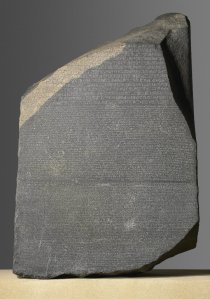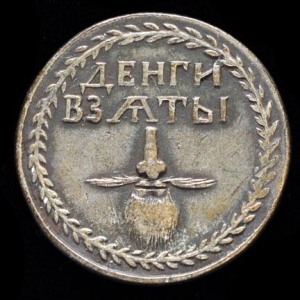Everyone’s least favorite day of the year – Tax Day – seems to come around faster than birthdays. But a look at global history shows that when it comes to being taxed, our April 15 could be a lot more painful.

Taxes have existed in all cultures for thousands of years. Even the very first known civilization, the Sumerians, recorded their tax history on clay cones. The Rosetta stone, the most significant relic of Egyptian history, is a tax-oriented document. It was inscribed around 200 B.C. during the reign of the boy-king Ptolemy V. In fact, a large percentage of all ancient documents are tax records of one kind or another.
One consistent across time is the oddity of so many tax laws. Uncle Sam can boast a few doozies of his own, like requiring a sales tax on sliced bagels but not whole bagels in New York, taxing diapers for kids but not adults in Connecticut, or being taxed 10 cents for a deck of playing cards in Alabama while Nevada is known to give out free decks for completed tax returns. The good news, at least for residents of New Mexico, is you can stop paying taxes once you reach 100 years of age — then you’re finally considered tax-exempt.

Maybe the writers of these strange U.S. tax laws took their cue from prominent historical figures. Russian Emperor Peter the Great placed a tax on beards in 1705. He hoped that the tax would encourage men to have a clean-shaven look that was popular in Western Europe. He also taxed beehives, horse collars, hats, boots, basements and chimneys. Oliver Cromwell placed a tax on his political opponents, the Royalists, taking one-tenth of their property. In a move some modern day politicians might find admirable, he then used that money to fund activities against them.
Taxes certainly have created their share of backlash over the centuries. Our own little “tea party” wasn’t the only tax fight to result in military action. Spanish conquistador Hernando Cortez was able to defeat Montezuma during the Spanish Conquest largely because he incited a tax revolt among the peasants. One of the contributing factors to the French Revolution was the reviled salt tax, called the gabelle. In a little more civil approach, Lady Godiva made her famous au naturel ride as a form of tax protest.
When it comes to finding ways to collect higher taxes from the wealthy, England took a unique approach in 1691. The “Window Tax” affected wealthier residents since only they could afford houses with more than two windows. However, an unintended consequence of the law resulted in new homes being built with fewer windows or homeowners closing up existing windows. When people began to suffer health problems from lack of windows/air, the tax was finally repealed in 1851.
“Window Tax” affected wealthier residents since only they could afford houses with more than two windows. However, an unintended consequence of the law resulted in new homes being built with fewer windows or homeowners closing up existing windows. When people began to suffer health problems from lack of windows/air, the tax was finally repealed in 1851.
Tax rates themselves have varied over the centuries, and they were subject to just as much protest and complaining as today. Burdensome taxes in ancient Mesopotamia required each man to give up a cow or sheep, or to serve several months in labor for the government. Similarly, peasants in ancient China had to choose whether to pay their tax bill in grain or military service.
In many countries today, workers are not required to file annual income tax returns at all. Instead, their employers withhold the appropriate amount of taxes from paychecks and submit them directly to the taxing authority. Generally, only self-employed citizens must submit returns each year, and the deadlines vary from country to country. While U.S. citizens must file by April 15, other countries have different dates, such as: Germany – May 31; China – March 31; Mexico – April 30; Japan – March 15; Greece – March 2; and Russia – April 30.
As we approach the deadline of the 154th anniversary of our income tax – the first being imposed in 1861 to help pay for the Civil War – take comfort that for all their peculiarities, taxes do make our lives better: safe roads, good schools, clean water. Just be thankful you don’t have to pay in livestock or hard labor to keep that beautiful bay window.
References: http://www.efile.com/; https://turbotax.intuit.com/; http://forums.civfanatics.com; Keith Phillips Erb: “9 Fun Tax Facts on Tax Day to Help Ease the Pain”; Charles Adams: “For Good and Evil: The Impact of Taxes on the Course of Civilization”
